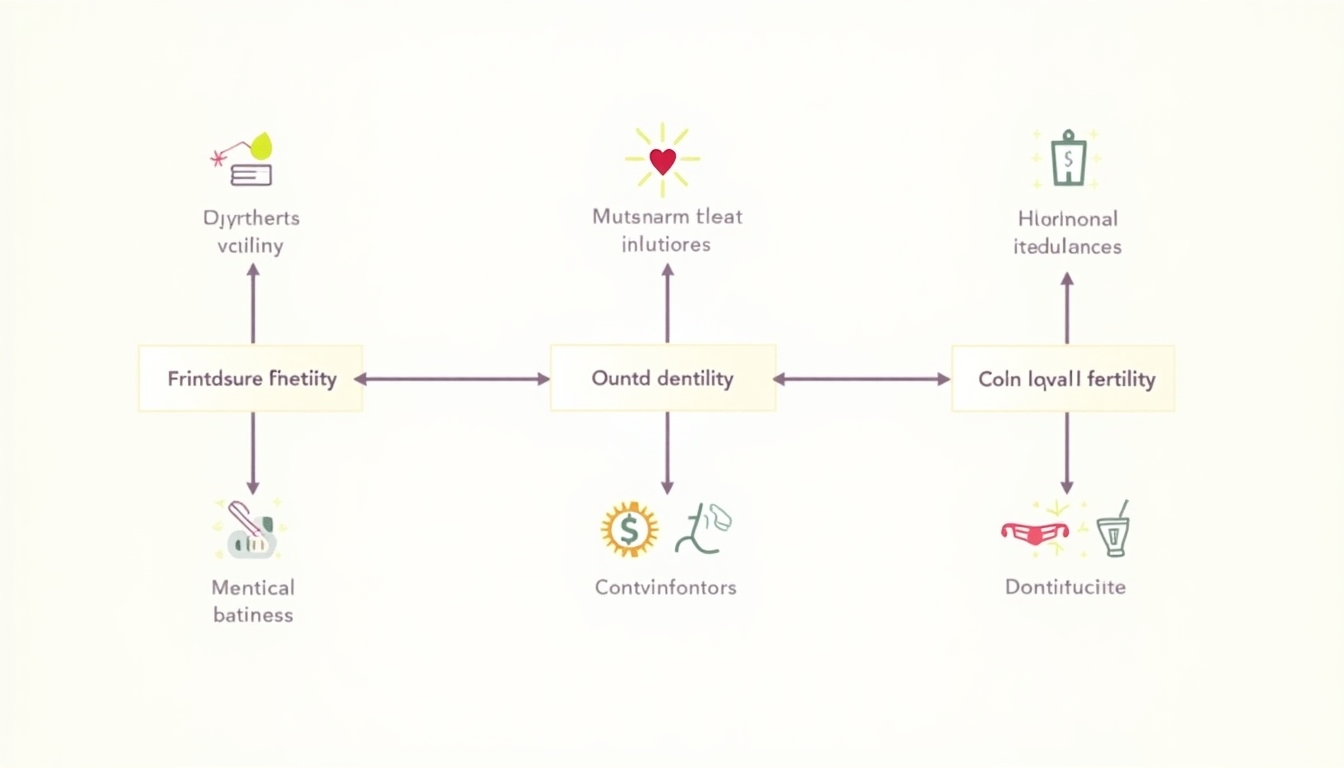Impact of Ovulation Disorders on Fertility
Jan. 29, 2025, 5:06 p.m.
Understanding the Impact of Ovulation Disorders on Fertility
Ovulation disorders are one of the main causes of female infertility, affecting many women worldwide. Understanding these disorders helps unveil their significant impact on fertility.
What are Ovulation Disorders?
Ovulation disorders happen when a woman's ovulation process is irregular or absent. This can prevent the ovaries from releasing eggs consistently, making conception difficult or impossible.

Common Types of Ovulation Disorders
There are a few common types of ovulation disorders: - Amenorrhea: This is when a woman stops or never starts having periods. - Oligoovulation: Refers to infrequent or irregular ovulation. - Anovulation: Occurs when no ovulation takes place at all.
Causes of Ovulation Disorders
These conditions can arise from various factors: - Polycystic Ovary Syndrome (PCOS): The most common cause, affecting hormonal balance. - Hypothalamic Dysfunction: Affects the regulation of hormones by the brain. - Premature Ovarian Insufficiency: Occurs when ovarian function declines before the age of 40. - Hyperprolactinemia: High levels of prolactin which disturb the menstrual cycle.

Symptoms of Ovulation Disorders
Understanding symptoms can help in early diagnosis and treatment: - Irregular Menstrual Cycles: Either too frequent, too few, or absent. - Heavy or Light Menstrual Bleeding - Painful Periods: Also known as dysmenorrhea. - Absence of Pre-Menstrual Symptoms: Typically seen in regular cycles.
Diagnosing Ovulation Disorders
Diagnosis often involves: 1. Medical History Review: To identify symptoms and patterns. 2. Physical Examination: Checking for physical signs of hormone imbalances. 3. Blood Tests: To measure hormone levels. 4. Ultrasound Scans: Examine the ovaries for cysts and other abnormalities.

The Emotional Impact on Women
Experiencing infertility due to ovulation disorders can be emotionally challenging. Many women report feelings of frustration, sadness, and isolation. It's crucial to have a support system and access to mental health resources.
Personal Insights: Living with Ovulation Disorders
Sarah, a 32-year-old, shares her personal battle with PCOS: "Finding out that my irregular cycles were due to PCOS was daunting. It explained my struggles with conception and turned my life around as I started exploring treatment options. The key was finding a supportive doctor who understood and addressed my needs."

Treatment Options for Ovulation Disorders
Treatment varies depending on the cause but often includes: - Lifestyle Modifications: Weight management and diet changes. - Medications: Clomiphene citrate and Metformin are common to induce ovulation. - Hormonal Therapies: Correcting imbalances to regulate ovulation. - Surgical Interventions: Such as ovarian drilling for PCOS.
Coping Strategies and Support
Dealing with infertility requires both medical and emotional strategies. Here are some tips: - Educate Yourself: Knowledge is empowering. - Join Support Groups: Sharing experiences helps reduce feelings of isolation. - Counseling: Psychological support can alleviate the emotional burden.

Conclusion
Understanding the impact of ovulation disorders on fertility is vital for anyone experiencing these issues. While facing these challenges can be difficult, there are numerous avenues for treatment and support. With the right approach, many women can navigate these obstacles and find hope in their fertility journey.